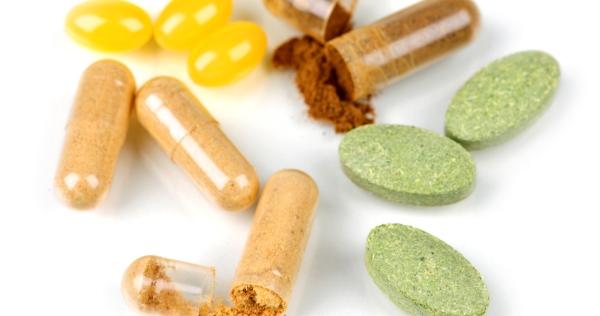Deadly Vitamins: Are Supplements Sending Us to An Early Grave?

It's been a bad week for vitamins.
First, findings published Monday found women over 60 who took vitamin supplements had a higher risk of dying over a 19-year study when compared with women who did not take supplements. Then, a study published Tuesday (Oct. 11) said men who take excess vitamin E are at an increased risk for prostate cancer .
Research shows about half of Americans take vitamin supplements . But as we religiously take our daily pills, are we improving our health, or actually making it worse?
Experts say vitamins can be beneficial if they're needed. But many people, they say, likely pop the pills without knowing what dose they should be taking.
That's where problems arise.
"Too much of a good thing is never a good thing," said Roberta Anding, a registered dietician and spokesperson for the American Dietetic Association.
"It's the dose that determines if it's a benefit or a poison," Anding said. When you take a dose of vitamins that's way beyond what you would find in food "you're moving into the category of a drug," she said.
Sign up for the Live Science daily newsletter now
Get the world’s most fascinating discoveries delivered straight to your inbox.
So should we stop taking vitamins? First and foremost, we should try to get our daily requirements of vitamins from food, experts say. Then, only if we have a deficiency or extra need, should we take supplements, Anding said. A doctor or registered dietician can help you determine if you need a supplement and what dose is required.
"You want to make sure you're savvy in what you're doing, and not just picking a number out of the sky," Anding said.
Not always healthy
The studies out this week are not the first to question the benefits of vitamins. In 1994, a landmark study of antioxidant vitamins in 29,000 male smokers found that beta carotene increased the risk of lung cancer , said Katherine Tallmadge, a registered dietitian and author of "Diet Simple" (LifeLine Press, 2011).
This finding stunned researchers, Tallmadge said. After all, it was known that people who ate foods high in antioxidants had lower rates of cancer.
Shouldn't a pill be able to provide the same advantages as food?
Not necessarily, experts say. More and more research suggests that vitamins known to enhance health "can't be pulled out of food, can't be isolated to create the same benefit," Tallmadge said.
Why might this be?
"Nutrition is just so complex," Tallmadge said. "One piece of fruit may contain 150 different beneficial compounds."
"It could be that the synergistic effects of these compounds, and just the ideal balance of these compounds, are what protect us from disease more than any specific vitamin, mineral or substance."
When we take excess vitamins, we may throw off this balance. Too much folic acid can interfere with the effects of vitamin B12. And the consumption of excessive iron has been linked with the development of cancer.
"The preponderance of data is showing that there can be dangers to taking too many vitamins," Tallmadge said.
Vitamin surplus
That's not to say vitamin supplements are never necessary. People with certain diseases or conditions may not be able to get all the nutrients they need from food. Pregnant women, patients with Crohn's disease and those who've had gastric bypass surgery are just a few examples of people who would likely need vitamin supplements, Anding said.
But given that Americans spend $20 billion a year on vitamin supplements, it's likely many who take them don't need them, Anding said.These people may not realize that a vitamin surplus may be just as bad as a deficit.
"Supplements cannot make up for a healthy diet," Tallmadge said. "They may help but they may also hurt," she said.
Pass it on: Vitamin supplements are sometimes necessary, but a high dose may be harmful.

Rachael is a Live Science contributor, and was a former channel editor and senior writer for Live Science between 2010 and 2022. She has a master's degree in journalism from New York University's Science, Health and Environmental Reporting Program. She also holds a B.S. in molecular biology and an M.S. in biology from the University of California, San Diego. Her work has appeared in Scienceline, The Washington Post and Scientific American.









